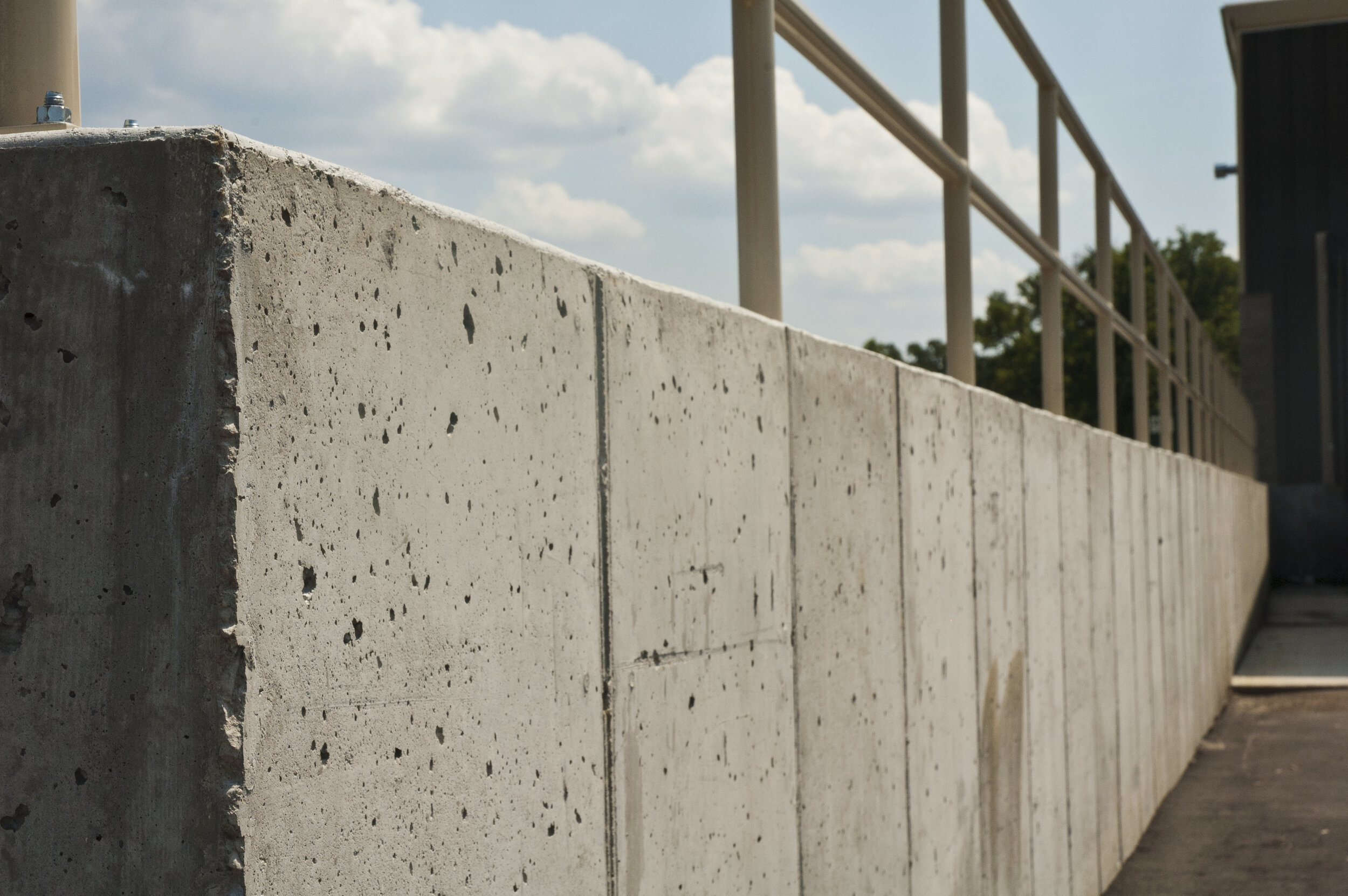
Concrete vs. Masonry
Understanding the Difference Between Concrete Work +
Masonry Work
In construction, two essential elements play a significant role in shaping our built environment: concrete and masonry. Both are foundational components, quite literally, in the construction industry. Yet, understanding the subtle but crucial differences between concrete work and masonry work is vital for ensuring the success of any commercial construction project.
This resource dives deep into these two distinct domains and sheds light on the roles of commercial concrete contractors and masonry contractors in the construction ecosystem.
Concrete Work Defined
Concrete, often referred to as "liquid stone," is a versatile construction material known for its strength, durability, and adaptability. Commercial concrete work involves the creation and placement of concrete in various forms, serving as the backbone of countless structures worldwide. This work encompasses a broad spectrum of applications, from foundation slabs and structural walls to intricate decorative elements.
Concrete work begins with the careful mixing of cement, aggregates, water, and often additives to achieve the desired consistency and properties. Once mixed, the concrete is transported to the construction site, where commercial concrete contractors skillfully pour, shape, and finish it according to project specifications. This process requires precision and expertise to ensure the structural integrity of the final product.
MASONRY Work Defined
In contrast to concrete work, masonry work focuses on the art of assembling structures using individual units, often referred to as masonry units or bricks. These units can be made from a variety of materials, including clay, concrete, and natural stone. Masonry contractors are responsible for constructing walls, facades, and other architectural elements using these units, adhering them together with mortar.
Masonry work showcases the enduring beauty of brick, stone, or concrete block structures. It involves the careful selection and arrangement of masonry units to create visually appealing and structurally sound designs. This craft requires a keen eye for detail, as masons meticulously lay each unit, ensuring proper alignment and mortar coverage.
Key Differences
Now, let's get into the key differences between concrete work and masonry work in more detail.
01. MATERIALS
Concrete Work:
Primarily uses a mixture of cement, aggregates, water, and additives.
Masonry Work:
Involves individual masonry units, such as bricks or stone, joined together with mortar.
02. CONSTRUCTION PROCESS
Concrete Work:
Involves the pouring and shaping of a semi-fluid mixture.
Masonry Work:
Focuses on the arrangement of solid units with mortar.
03. APPLICATIONS
Concrete Work:
Used for foundations, slabs, columns, and various structural elements.
Masonry Work:
Commonly seen in walls, facades, fireplaces, and decorative elements.
04. TOOLS + TECHNIQUES
Concrete Work:
Requires formwork, concrete pumps, and finishing tools.
Masonry Work:
Involves trowels, levels, and masonry saws.
Choosing the Right Contractor
Selecting the appropriate contractor for your project is the key to the project’s success. While some contractors offer both concrete and masonry services, it's often beneficial to understand the difference between the two professions.
Commercial Concrete Contractor:
01.
These experts excel in concrete mixing, placement, and finishing.
02.
Ideal for projects that involve foundations, structural elements, or intricate concrete work.
03.
Possess in-depth knowledge of concrete properties, curing techniques, and reinforcement methods.
Masonry Contractor:
01.
Specialize in masonry unit selection, layout, and mortar application.
02.
Best suited for projects involving walls, facades, and decorative masonry elements.
03.
Proficient in various masonry techniques, such as bricklaying, stonemasonry, and blocklaying.
Benefits of Specialization
Collaborating with specialized contractors offers numerous advantages for your construction project:
-
Specialized contractors possess a deep understanding of their respective fields, ensuring top-notch work quality.
-
Focused expertise often translates to greater efficiency in project execution and a reduced likelihood of errors.
-
Specialized contractors can tailor their services to meet the unique demands of your project, resulting in a more customized approach.
-
They are well-versed in industry regulations and standards, ensuring that your project adheres to safety and quality guidelines.
Case Studies
To provide a more tactical explanation of the differences between concrete and masonry work, let's look at a couple of case studies that illustrate the difference between concrete work and masonry work.
CASE STUDY 01
High-Rise Apartment Building
Concrete Work:
The commercial concrete contractor was responsible for pouring the building's reinforced concrete foundation, floor slabs, and structural columns.
Masonry Work:
The masonry contractor created the stunning brick façade that adorned the building's exterior.
CASE STUDY 02
Historic Restoration
Concrete Work:
The restoration project involved concrete repairs and the installation of a new concrete foundation.
Masonry Work:
Skilled masons meticulously restored the damaged stone façade and decorative elements.
Understanding the distinction between concrete work and masonry work is helpful when going into any commercial construction project. While both play integral roles, each has its unique materials, techniques, and applications. By choosing a contractor such as Evenson Concrete Systems that understands the difference and recognizes the benefits of specialization, you can ensure that your construction project results in structures that are not only functional but also aesthetically pleasing.
Learn more about how Evenson Concrete Systems can serve your commercial concrete needs for your next architectural project.
